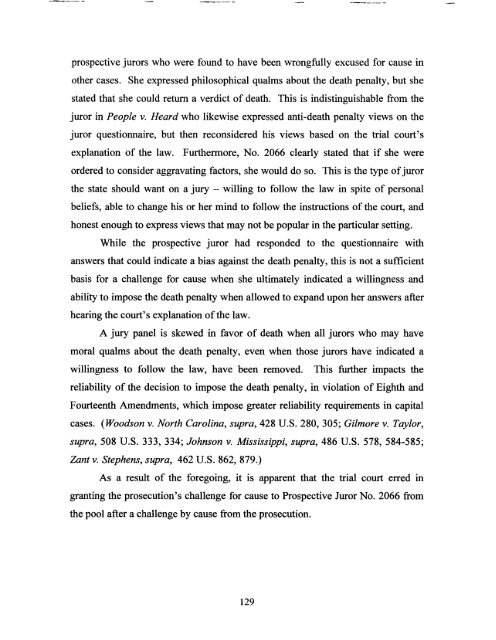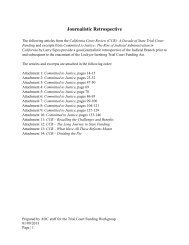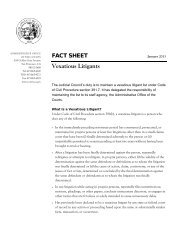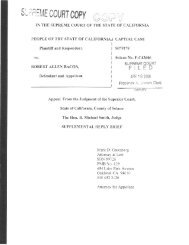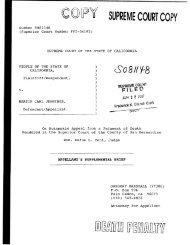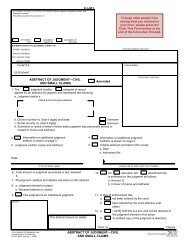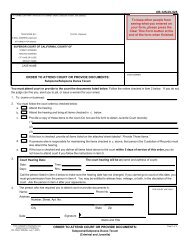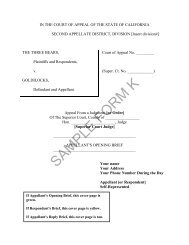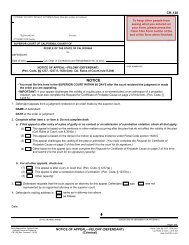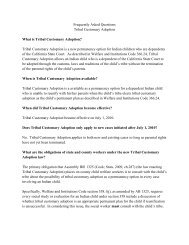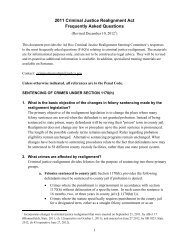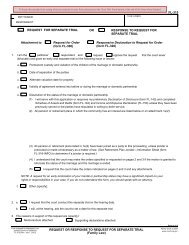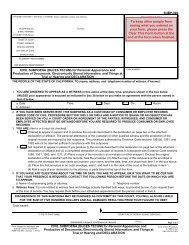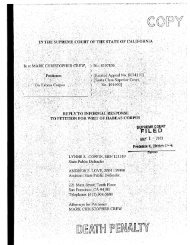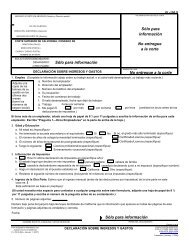Appellant, William Satele, Reply Brief - California Courts - State of ...
Appellant, William Satele, Reply Brief - California Courts - State of ...
Appellant, William Satele, Reply Brief - California Courts - State of ...
Create successful ePaper yourself
Turn your PDF publications into a flip-book with our unique Google optimized e-Paper software.
prospective jurors who were found to have been wrongfully excused for cause in<br />
other cases. She expressed philosophical qualms about the death penalty, but she<br />
stated that she could return a verdict <strong>of</strong> death. This is indistinguishable from the<br />
juror in People v. Heard who likewise expressed anti-death penalty views on the<br />
juror questionnaire, but then reconsidered his views based on the trial court's<br />
explanation <strong>of</strong> the law. Furthermore, No. 2066 clearly stated that if she were<br />
ordered to consider aggravating factors, she would do so. This is the type <strong>of</strong>juror<br />
the state should want on a jury - willing to follow the law in spite <strong>of</strong> personal<br />
beliefs, able to change his or her mind to follow the instructions <strong>of</strong> the court, and<br />
honest enough to express views that may not be popular in the particular setting.<br />
While the prospective juror had responded to the questionnaire with<br />
answers that could indicate a bias against the death penalty, this is not a sufficient<br />
basis for a challenge for cause when she ultimately indicated a willingness and<br />
ability to impose the death penalty when allowed to expand upon her answers after<br />
hearing the court's explanation <strong>of</strong>the law.<br />
A jury panel is skewed in favor <strong>of</strong> death when all jurors who may have<br />
moral qualms about the death penalty, even when those jurors have indicated a<br />
willingness to follow the law, have been removed. This further impacts the<br />
reliability <strong>of</strong> the decision to impose the death penalty, in violation <strong>of</strong> Eighth and<br />
Fourteenth Amendments, which impose greater reliability requirements in capital<br />
cases. (Woodson v. North Carolina, supra, 428 U.S. 280, 305; Gilmore v. Taylor,<br />
supra, 508 U.S. 333, 334; Johnson v. Mississippi, supra, 486 U.S. 578, 584-585;<br />
Zant v. Stephens, supra, 462 U.S. 862, 879.)<br />
As a result <strong>of</strong> the foregoing, it is apparent that the trial court erred in<br />
granting the prosecution's challenge for cause to Prospective Juror No. 2066 from<br />
the pool after a challenge by cause from the prosecution.<br />
129


